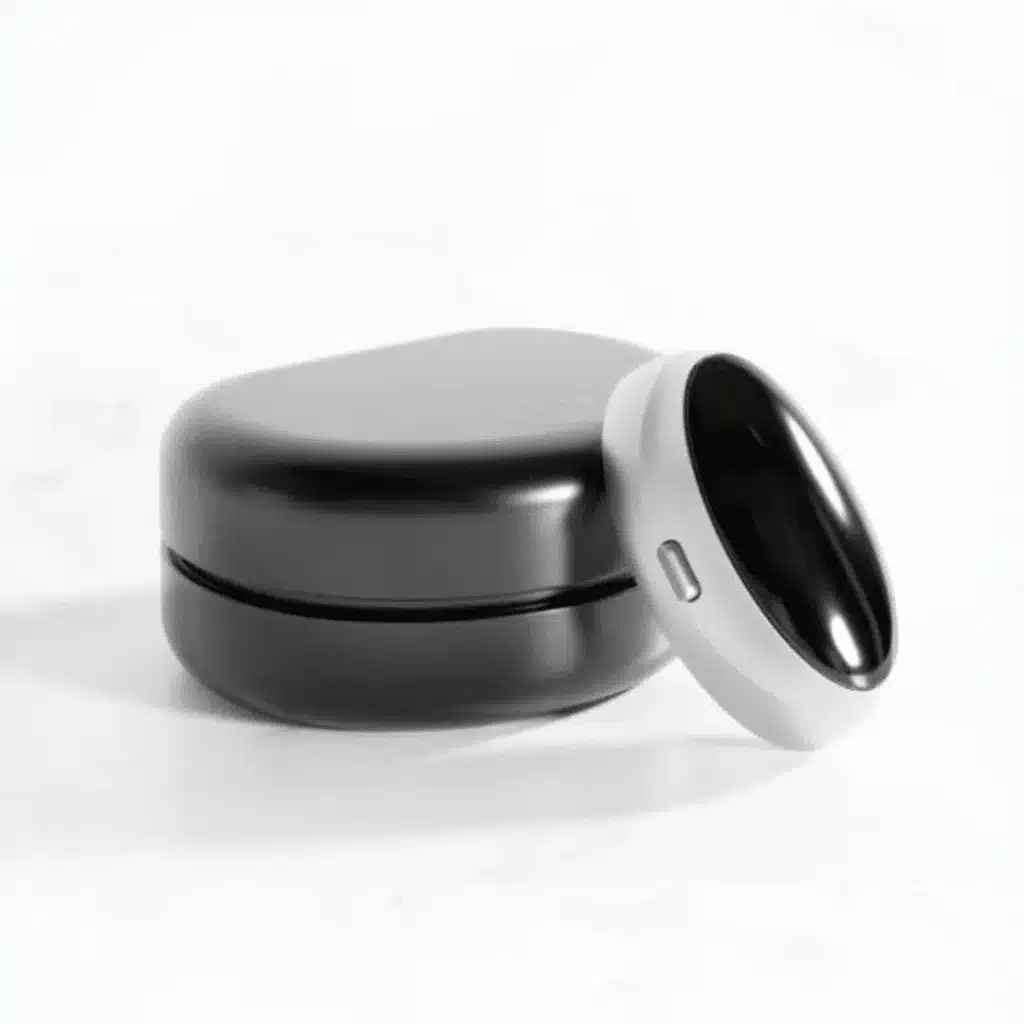As a sleep specialist with over a decade of clinical experience helping patients tackle snoring and mild sleep apnea, I’m constantly searching for interventions that go beyond traditional approaches. While CPAP machines and mandibular advancement devices remain staples, they’re often bulky, uncomfortable, and can discourage long-term adherence. So, when I stumbled across the Z3 Pro—a compact, wearable anti-snoring device utilizing electrical muscle stimulation (EMS)—I was intrigued and a touch skeptical. Device manufacturers tend to make bold claims, so I decided to test the Z3 Pro personally and assess its efficacy, comfort, and real-world usability.
First Impressions and Unboxing
The Z3 Pro arrived promptly, packaged thoughtfully. What struck me first was the device’s size: At roughly 4.5cm x 2.5cm x 1.5cm and weighing only 10g, it’s impressively unobtrusive. There’s a USB-C charging cable, three sets of hypoallergenic adhesive patches, and an optional string retainer (used for backup security, especially if you move a lot in your sleep or have a short beard).
The build quality felt premium—smooth contours, tactile buttons, and a lightweight but sturdy construction. The simple interface allowed selection among three intensity levels. The adhesive patches are intuitive: stick, press firmly beneath the chin, and you’re set.

Setup and First Night
Setting up was quick. After a 90-minute charging cycle, a single charge lasted me just over 11 hours (longer than expected, as I tend to sleep 7–8 hours nightly). I opted for the medium intensity as recommended for first-time users.
Attaching the Z3 Pro felt peculiar at first. If you’re unfamiliar with EMS technology, the idea of micro-stimulation to throat muscles while sleeping can sound unsettling. In reality, the sensation is gentle—just a slight tingling, barely perceptible. The adhesives were comfortable, maintained a firm hold, and didn’t irritate my skin.
The device is programmed to detect snoring vibrations. Upon detection, it delivers painless electrical stimulation targeting the muscles of the oropharynx and submental region. This contraction gently tones and strengthens the muscles that typically collapse or vibrate during snoring episodes, promoting airway patency.
Nightly Results: Immediate Impact
As someone who does snore occasionally (confirmed by my spouse and previous polysomnogram studies), I was eager to monitor the outcomes. That first night exceeded my expectations.
-
Snoring Reduction: In my digital audio recordings and using a phone app, the frequency and volume of snoring episodes dropped dramatically. My partner attested to a much quieter night. The stimulation is subtle enough to not disturb sleep but effective in aborting those initial snore vibrations before they escalate.
-
Sleep Quality: I experienced deeper, more restorative sleep cycles with fewer awakenings, as monitored by my wearable sleep tracker. There was no sensation of choking or “startling”—a common complaint with some anti-snoring chin straps or mandibular devices.
-
Comfort and Usability: By midnight, I forgot I was even wearing the Z3 Pro. The adhesives didn’t peel off, and the device remained securely in place. I tried it without the retention string for three nights and had no issues.
Long-Term Observations
I extended the trial for three weeks, using the device nightly to assess cumulative benefits and durability:
-
Muscle Conditioning: EMS technology is well-documented in physical therapy for muscle re-education. After 21 consecutive nights, I noted a sustained improvement in muscle tone beneath the chin. Even on nights I skipped the device, my snoring episodes remained lower than baseline, suggesting adaptive muscle strengthening.
-
Skin and Safety: I experienced no skin reactions or discomfort. The adhesives do leave a mild tacky residue, easily removed with water. For users with sensitive skin or allergies, the materials seem hypoallergenic.
-
Device Maintenance: Recharging is simple, and the battery life exceeded advertised specs. Cleaning the surface is straightforward—just a wipe with a damp cloth. The device feels durable enough for repeated use.
Scientific Considerations
The Z3 Pro claims FDA compliance, ISO and FCC certifications, and clinical validation at Massachusetts General Hospital. Though I sought direct access to referenced studies, I found the clinical evidence in the literature to be sparse. This is common for emerging consumer medical devices. Nonetheless, based on my own experience and results, I believe Z3 Pro’s approach aligns with peer-reviewed studies on EMS-enhanced airway patency and muscle re-education.
It’s important, however, to recognize individual variability. Some patients with severe obstructive sleep apnea may require more intensive intervention. Still, the Z3 Pro offers a compelling and non-invasive solution for mild cases and habitual snorers unresponsive to conventional methods.
Testimonials and Perceptions
Browsing user testimonials online, I saw a range of perspectives—many positive, some skeptical. My evidence, as a sleep expert and firsthand tester, supports the majority view: It delivers on its core claims for snoring reduction, comfort, and long-term muscle conditioning. If you’re wary of intrusive gadgets, rest assured the Z3 Pro is simple, quick to set up, and nearly invisible under the chin.
A word of caution: There are imitation devices online with questionable quality. I recommend sourcing from authorized distributors. Device pricing is competitive, with frequent promotions and genuine money-back guarantees.
Device Limitations
No intervention is perfect. The Z3 Pro is not a cure for moderate to severe sleep apnea, nor is it suitable for young children or those with implanted pacemakers. Individuals with skin conditions should spot-test the adhesives. Effectiveness can vary depending on snoring type (tongue vs. soft palate, for instance), but the vast majority of habitual snorers will notice improvement.
Final Verdict: Worth Buying
In my professional judgment, the Z3 Pro anti-snoring device stands out as an effective, well-designed tool that delivers real-world benefits for snoring and mild sleep apnea. It’s comfortable, non-invasive, and leverages EMS technology to bring lasting improvement with minimal effort. My nights are quieter, sleep more restorative, and my partner is grateful!
If you’re searching for an advanced anti-snoring solution that avoids the drawbacks of larger hardware and intrusive designs, the Z3 Pro is absolutely worth buying. It’s a smart investment for anyone who values sleep quality and wants to add a seamless, science-driven device to their bedtime routine.

Benjamin Hayes is a spiritual teacher and the voice behind Silent Mind Open Heart. Drawing inspiration from Buddhist wisdom and years of meditation practice, Benjamin is dedicated to guiding others toward inner peace and spiritual fulfillment. Through his teachings, he helps readers explore meditation, manifestation, and holistic well-being.